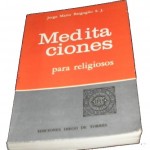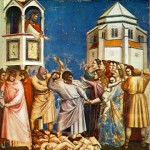This article is written from a Calvinist (Presbyterian – PCA) perspective. When talking about something as sacred as a sacrament like the Lord’s Supper, we should always know why we do it and what benefits it brings. So,
Why do we celebrate the Lord’s Supper?
Firstly, I’ll present a passage that our pastors often read when administering Communion – 1 Corinthians 11:23-26
23 For I received from the Lord that which I also delivered to you, that the Lord Jesus in the night in which He was betrayed took bread; 24 and when He had given thanks, He broke it and said, “This is My body, which is for you; do this in remembrance of Me.” 25 In the same way He took the cup also after supper, saying, “This cup is the new covenant in My blood; do this, as often as you drink it, in remembrance of Me.” 26 For as often as you eat this bread and drink the cup, you proclaim the Lord’s death until He comes.
We partake in Communion because we are following Christ’s example. There in verse 25, he says do this in remembrance of Me. Thus, we partake in Communion out of obedience. This should be sufficient, but that is not the only reason. Another is the blessings we receive (1 Corinthians 10:16-17):
16 Is not the cup of blessing which we bless a sharing in the blood of Christ? Is not the bread which we break a sharing in the body of Christ? 17 Since there is one bread, we who are many are one body; for we all partake of the one bread.
The partaking in Communion is receiving a blessing. It is spiritual food, something God has ordained to help us. It also is a unifying measure, where all the members of the church are bound up together in Christ. Also, as communion is only for believers (more on that later), and done in corporate worship, it is a repeated visible declaration of faith, a quiet proclamation that I am a believer. Of course, this does not mean that Communion should be showy, irreverent, or prideful. Paul has harsh words for those that misuse the sacrament.
Fencing the Table
In this area, the Presbyterian Church in America (PCA), and several associated Presbyterian denominations, differ from the Catholic, Lutheran, Orthodox, and a few smaller Protestant denominations in that we practice open communion. But going even further than some open-communion practicing congregations, the PCA as a denomination does not require a partaker in The Lord’s Supper to be of the “same faith and practice”. All that is required is
- that the partaker believe in Jesus Christ as his Savior. Some ask, since you practice Paedobaptism, why do you not practice Paedocommunion? That could be an article in itself, but there are two reasons: the first is that while baptism is the visible entrance into the earthly church, communion is, once again, part of a public profession of faith and a spiritual blessing to those who believe. This command is clear in scripture, for those who would partake, to “examine himself, and in so doing he is to eat of the bread and drink of the cup.” (1 Corinthians 11:28) (see John Calvin’s Institutes of the Christian Religion, Book 4, Chapter 16, Section 30). Secondly, some would argue that children did not participate in passover, and thus, we should not allow them either. However, there does not appear to be enough evidence that says definitively children did not participate. Requiring a profession of faith for partaking has led many congregations to distinguish between communing members (children who have made a profession of faith but are still very immature in their faith) and simply members.
- that the partaker be baptized. According to a PCA committee on Fencing the Lord’s Table, “Baptism is into a community of believers, that is a church. Unbaptized people certainly should not be permitted to come to the Table. Of course unbaptized people credibly professing faith in Christ and seeking admittance to the Table should be baptized with all proper speed, and thereupon admitted to the Table. At this point, these communicants are baptized members of a visible church.”
- if these requirements are met, yet the partaker resists formally joining any church, he should not be permitted to partake. Also from the same committee above, “One cannot love Christ and eschew His bride. The credible profession of persons unwilling to unite to Christ’s Church must be questioned. Any sinful unwillingness to unite with Christ’s people should be addressed pastorally (Hebrews 10:25; 1 Corinthians 10:16-17). Those unwilling to unite to Christ’s Church are outside the visible body of Christ.”
Some Presbyterian congregations do practice close communion (note: not closed), that is, those of the “same faith and practice”. Usually in the case of the congregation practicing this, it will mean the Session has reviewed doctrines practiced by other churches and those that believe mostly similar doctrines are allowed to partake. As noted above, the PCA as a denomination does not require one or the other, it merely states that individual congregations may practice open or close communion.
Regardless of the method, when the table is fenced, a message is given clearly stating who is to receive Always at this point the succeeding verses of 1 Corinthians 11 are added, specifically verses 27-30
27 Therefore whoever eats the bread or drinks the cup of the Lord in an unworthy manner, shall be guilty of the body and the blood of the Lord. 28 But a man must examine himself, and in so doing he is to eat of the bread and drink of the cup. 29 For he who eats and drinks, eats and drinks judgment to himself if he does not judge the body rightly. 30 For this reason many among you are weak and sick, and a number sleep.
The judgement for those who wrongly partake of communion is clear here. It is a blessing for those in the true church, but a curse for those who do not believe.
Administration
Some of the finer specifics of administration can vary from congregation to congregation. Some churches may serve real (alcoholic) wine (grape juice is almost always offered as a substitute for those who desire it instead), and others just grape juice. In my congregation, we only serve grape juice. The bread used also varies from congregation to congregation. Some use actual baked loaves of bread, and chunks are torn off by each partaker as it is passed. My congregation uses a yeast-free bread that is similar to soft shortbread, cut into small pieces. And some churches do use the small wafers with the cross on them, though these seem to be a minority in Presbyterian circles.
Frequency
Most Presbyterian churches serve communion once a month, usually on a specific Sunday of the month. Even though Calvin was a staunch supporter of weekly communion, many churches in the Reformed tradition serve Communion only monthly, and Presbyterians in general are no exception. Many feel that having weekly communion lessens the importance and the deepness of the sacrament. But you can make even the common special if you vary parts of the service and encourage those in attendance to prepare themselves.
So Communion is a blessed time for the church body, regardless of the finer doctrinal details. It is a time to remember Christ’s sacrifice, and to be renewed even more by the work of the Holy Spirit. But we must remember that it is a solemn occasion, and we must come to the table in a worthy manner. Even though there can be large differences in some of the specifics, the core elements remain the same, and the blessing is showered down upon all who receive in this worthy manner.
Filed under Uncategorized






 It‘s Advent: time of Coming, or waiting for Coming, expecting Coming. Expecting the second Coming of Christ and also expecting the commemoration of His first Coming, of Christmas. And it’s the fourth week of Advent, its very end. This year it’s a sudden end, with Christmas Eve just a day after fourth Sunday of Advent.
It‘s Advent: time of Coming, or waiting for Coming, expecting Coming. Expecting the second Coming of Christ and also expecting the commemoration of His first Coming, of Christmas. And it’s the fourth week of Advent, its very end. This year it’s a sudden end, with Christmas Eve just a day after fourth Sunday of Advent. The first thing Mary did after the strange visit from Gabriel was to pursue the best clue she found in the angel’s words – she visited her relative Elizabeth. I can’t believe that Mary was prepared for Elizabeth’s greeting like this, and even though her song (Luke 1:46-55) could be composed earlier (well, Bible critiques expect it was), Mary probably didn’t prepare it just for that occasion. I have experienced similar sudden reminding of some old song or Bible verse that just fits the moment many times and I’m sure that you experienced something similar too, so why couldn’t Mary?
The first thing Mary did after the strange visit from Gabriel was to pursue the best clue she found in the angel’s words – she visited her relative Elizabeth. I can’t believe that Mary was prepared for Elizabeth’s greeting like this, and even though her song (Luke 1:46-55) could be composed earlier (well, Bible critiques expect it was), Mary probably didn’t prepare it just for that occasion. I have experienced similar sudden reminding of some old song or Bible verse that just fits the moment many times and I’m sure that you experienced something similar too, so why couldn’t Mary?
